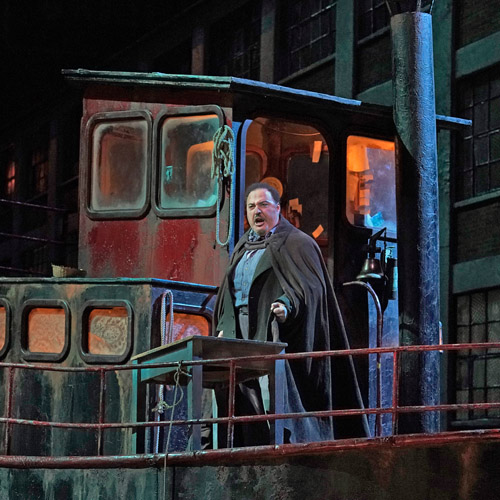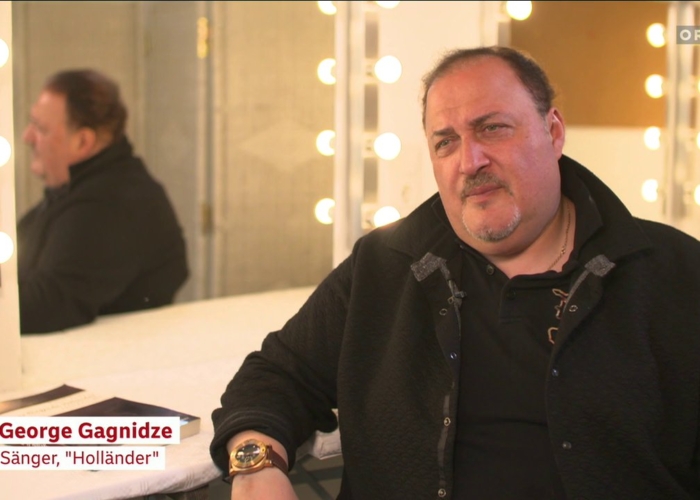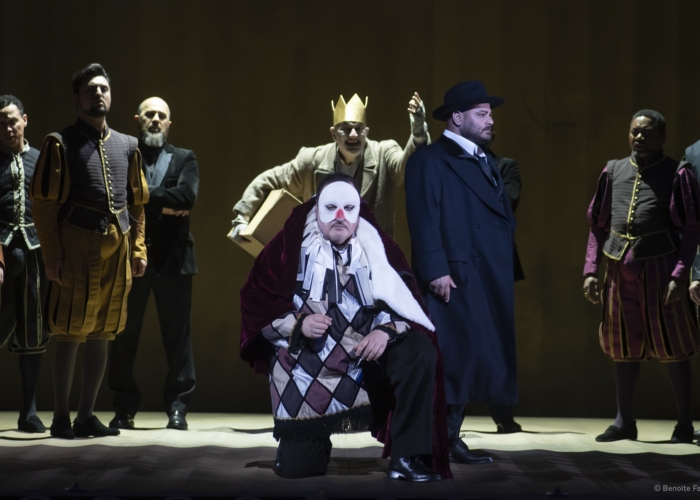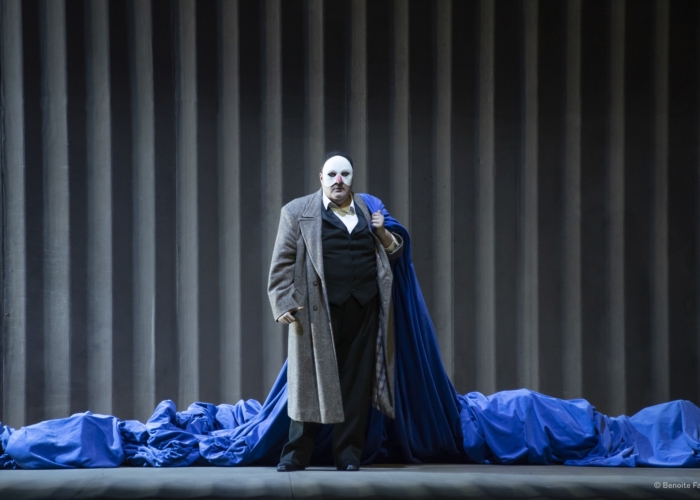
Review
|
13.12.2018
Il Tabarro – Metropolitan Opera 2018
“Celebrating the centennial of the work’s world premiere, at the Met on Dec. 14, 1918, this was a very fine “Trittico,” particularly the disconsolate “Il Tabarro,” inflamed by Amber Wagner’s big, creamy soprano, Marcelo Álvarez’s effusive tenor, and George Gagnidze’s grim, moody baritone”
Zachary Woolfe, The New York Times
“About the only excitement was sparked by soprano Amber Wagner and baritone George Gagnidze as the miserably married Giorgetta and Michele. These two, plus Blythe, were the only singers who mustered the wallop that only king-sized voices can deliver in a huge theater like the Met.”
James Jorden, Observer
“Celebrating the centennial of the work’s world premiere, at the Met on Dec. 14, 1918, this was a very fine “Trittico,” particularly the disconsolate “Il Tabarro,” inflamed by Amber Wagner’s big, creamy soprano, Marcelo Álvarez’s effusive tenor, and George Gagnidze’s grim, moody baritone”
Zachary Woolfe, The New York Times
“About the only excitement was sparked by soprano Amber Wagner and baritone George Gagnidze as the miserably married Giorgetta and Michele. These two, plus Blythe, were the only singers who mustered the wallop that only king-sized voices can deliver in a huge theater like the Met.”
James Jorden, Observer
“Rounding out the tortured love triangle was George Gagnidze’s moody Michele. His palpable pain at the realization of his double loss (first his child, now his wife) kept him from being a villain, and his mellifluous tone reinforced his humanity.”
Joanne Sydney Lessner, Opera News
“… George Gagnidze was an impressive Michele.”
Eduardo Brandenburger, Ópera Áctual
“The smoldering, menacing Michele of George Gagnidze overwhelmed Amber Wagner and Marcelo Álvarez as the illicit lovers.”
Patrick Clement James, Parterre.com
“… George Gagnidze is chilling in Michele’s soliloquy vowing to kill his wife’s as-yet unidentified lover.”
David M. Rice, ClassicalSource
“George Gagnidze’s rough-edged baritone is just right for the enraged Michele.”
Robert Levine, Bachtrack
“Baritone George Gagnidze is an unhappy and somber Michele, roused to anger and revenge when he discovers the identity of his wife’s lover.”
Operametro.com
“… very good voices (Amber Wagner’s firm, rich soprano as Giorgetta, George Gagnidze as Michele).” (…)
“George Gagnidze’s rough-hewn baritone was a good match for Michele.”
Humbled and Overwhelmed Blog
“George Gagnidze … menacing as ever … a harrowing delivery of his chilling monologue “Nulla! Silenzio!,”… .”
Eric C. Simpson, New York Classical Review
“El barítono georgiano administró sus recursos con sabiduría y llenó el escenario sin dificultades para cuajar un Michele de altura. Su éxito fue indiscutible.”
Carlos Javier Lopez, OperaWorld
“… imponente y bien caracterizado en el papel del brutal Michele. Sin duda cuando grita «La pace è nella morte!» al final de su monólogo evoca una presencia temible.”
David Yllanes Mosquera, Codalario

Interview
|
04.07.2025
Interview for ORF TV
In the lead-up to the premiere of Der fliegende Holländer at the Oper im Steinbruch Festival, George Gagnidze spoke with ORF TV about his role and the production in St. Margarethen. The interview, along with rehearsal footage, can be viewed here:

Interview
|
07.06.2025
Première Loge Interview
George Gagnidze recently spoke with Première Loge about his deep connection to Verdi and Rigoletto, the role he is currently singing at the Opéra national de Paris. The interview touches on his artistic journey, future projects, and his interpretation of one of opera’s most iconic characters.

Review
|
06.06.2025
Press review “Rigoletto” in Paris, May/June 2025
“George Gagnidze, a veteran of his signature role, which he embodies masterfully with exemplary intelligence, (...) throws himself admirably into this demanding part: ... showing no noticeable signs of age ... he often reaches moments of true emotion, culminating in a faultless and particularly poignant finale.” François Lehel, Opéra

Interview
|
01.04.2025
Interview with Appreciate Opera
George Gagnidze was interviewed by Alkis Karmpaliotis for the US publication Appreciate Opera. Below you will find a preview of the feature. To read the whole interview, you may click HERE.

Interview
|
20.03.2025
Interview for YouTube channel Kontextus
While in Budapest, George Gagnidze had a chat with the Hungarian YouTube channel Kontextus about his career, singing Verdi and Macbeth at the Hungarian State Opera:




